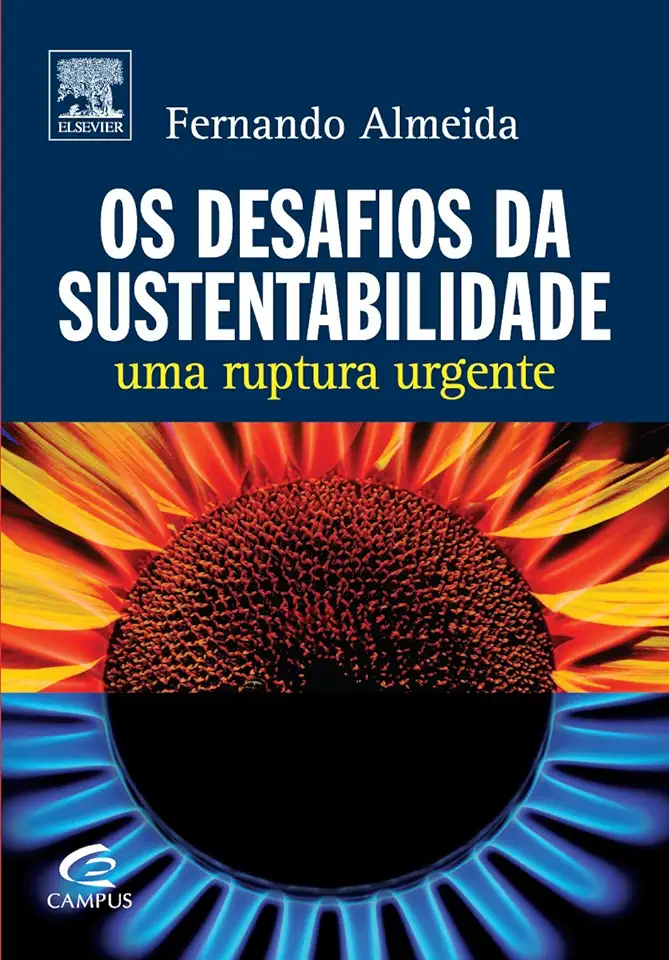
Sustainable Development 2012-2050 - Fernando Almeida
Sustainable Development 2012-2050: A Comprehensive Guide to Achieving a Sustainable Future
Introduction
In his groundbreaking book, "Sustainable Development 2012-2050," renowned environmentalist and thought leader Fernando Almeida presents a comprehensive roadmap for achieving a sustainable future for our planet. Drawing on decades of research and experience, Almeida offers a compelling vision of a world where economic prosperity, social equity, and environmental conservation coexist in harmony.
Key Themes
Throughout the book, Almeida emphasizes several key themes that are essential for achieving sustainable development. These include:
The urgent need for action: Almeida argues that we are at a critical juncture in human history, where the choices we make today will have profound implications for the future of our planet. He calls for immediate and decisive action to address the challenges of climate change, biodiversity loss, and resource depletion.
The importance of a holistic approach: Almeida emphasizes that sustainable development cannot be achieved by focusing on environmental issues alone. It requires a comprehensive approach that integrates economic, social, and environmental considerations. This means addressing poverty, inequality, and social injustice while also protecting the natural environment.
The role of technology and innovation: Almeida highlights the potential of technology and innovation to drive sustainable development. He argues that we need to harness these tools to develop new solutions that reduce our environmental impact and improve our quality of life.
The importance of international cooperation: Almeida stresses that sustainable development cannot be achieved by individual countries acting alone. It requires global cooperation and collaboration to address the challenges that transcend national borders.
Key Findings
Almeida presents a wealth of research and evidence to support his arguments. Some of the key findings from the book include:
The world is facing a climate crisis: The Earth's average temperature has increased by approximately 1 degree Celsius since the late 19th century, and the rate of warming is accelerating. This is causing a wide range of negative impacts, including rising sea levels, more extreme weather events, and the loss of biodiversity.
Biodiversity is declining at an alarming rate: The world is currently experiencing a mass extinction event, with species disappearing at a rate hundreds to thousands of times higher than the natural background rate. This loss of biodiversity is having a devastating impact on ecosystems and human well-being.
Resource depletion is a serious threat: The world is consuming resources at an unsustainable rate, and many of these resources are finite. This is leading to shortages, price increases, and geopolitical tensions.
Poverty and inequality are major challenges: Over 700 million people worldwide live in extreme poverty, and the gap between the rich and the poor is growing. This is not only a moral issue but also a threat to sustainable development.
Recommendations
Based on his findings, Almeida offers a series of recommendations for achieving sustainable development. These include:
Reducing greenhouse gas emissions: We need to drastically reduce our emissions of greenhouse gases, such as carbon dioxide and methane, to mitigate climate change. This can be done by transitioning to renewable energy sources, improving energy efficiency, and reducing our reliance on fossil fuels.
Protecting biodiversity: We need to take urgent action to protect biodiversity, including creating protected areas, reducing pollution, and promoting sustainable agriculture and forestry practices.
Ensuring sustainable resource use: We need to adopt sustainable consumption and production patterns to reduce our resource consumption and minimize waste. This includes using renewable materials, recycling, and reducing our reliance on single-use plastics.
Addressing poverty and inequality: We need to address poverty and inequality through a combination of economic growth, social protection, and education. This will help to ensure that everyone has the opportunity to live a decent life without compromising the environment.
Promoting international cooperation: We need to strengthen international cooperation to address global challenges such as climate change and biodiversity loss. This includes working together to develop and implement sustainable policies, sharing knowledge and technology, and providing financial assistance to developing countries.
Conclusion
"Sustainable Development 2012-2050" is a must-read for anyone concerned about the future of our planet. Fernando Almeida provides a comprehensive and compelling roadmap for achieving a sustainable future, drawing on decades of research and experience. The book is full of valuable insights, recommendations, and case studies that can help individuals, organizations, and governments make a positive impact on the world.
If you are passionate about sustainability, environmental protection, or social justice, I highly recommend reading this book. It will inspire you, challenge you, and empower you to make a difference. Together, we can create a sustainable future for ourselves and for generations to come.
Enjoyed the summary? Discover all the details and take your reading to the next level — [click here to view the book on Amazon!]